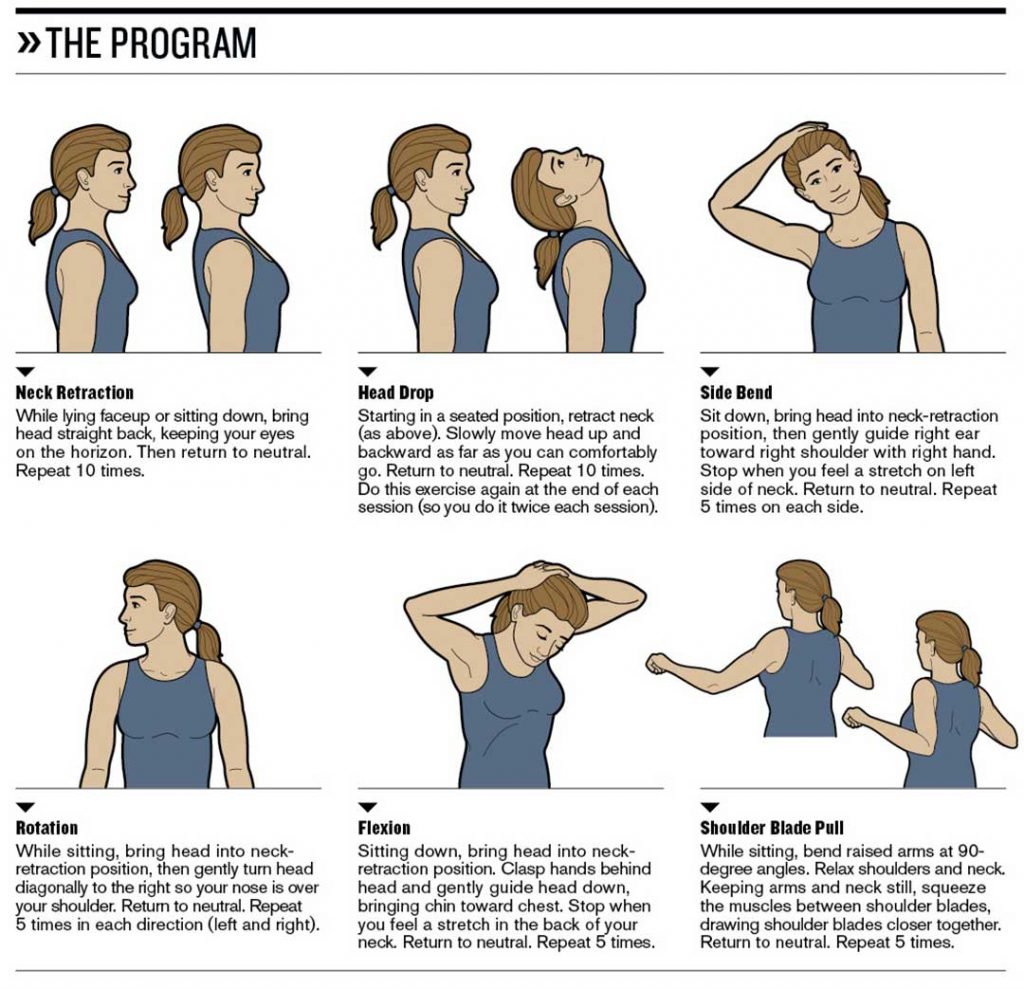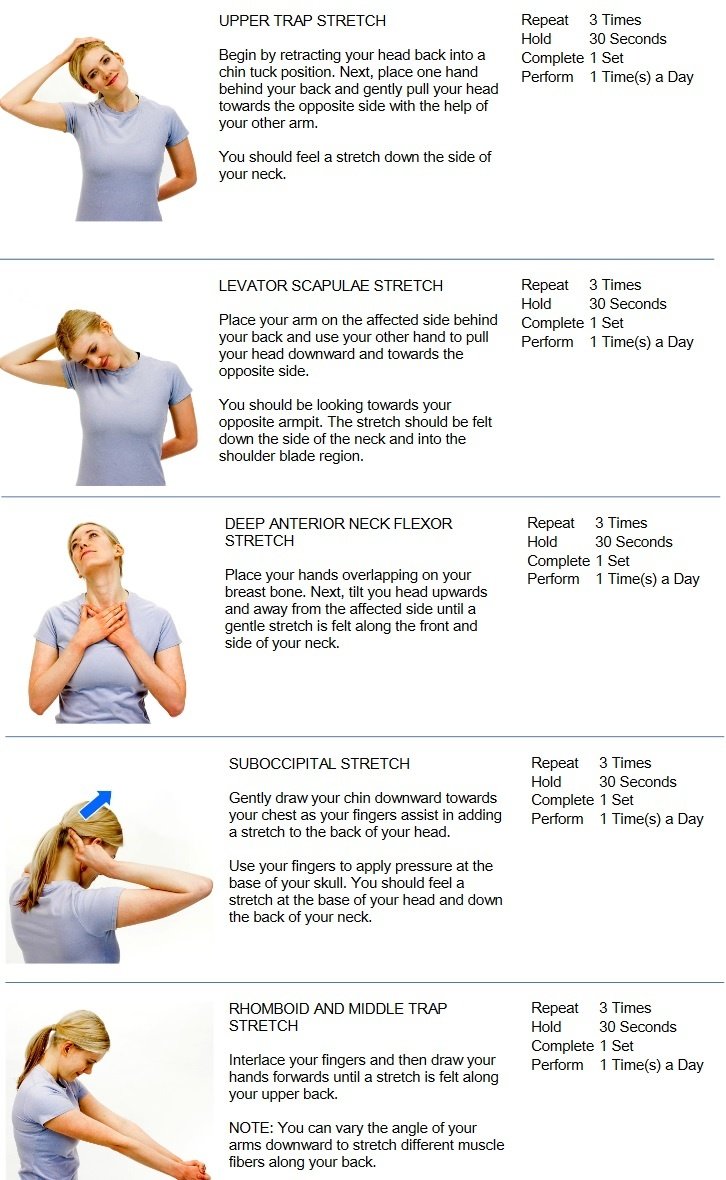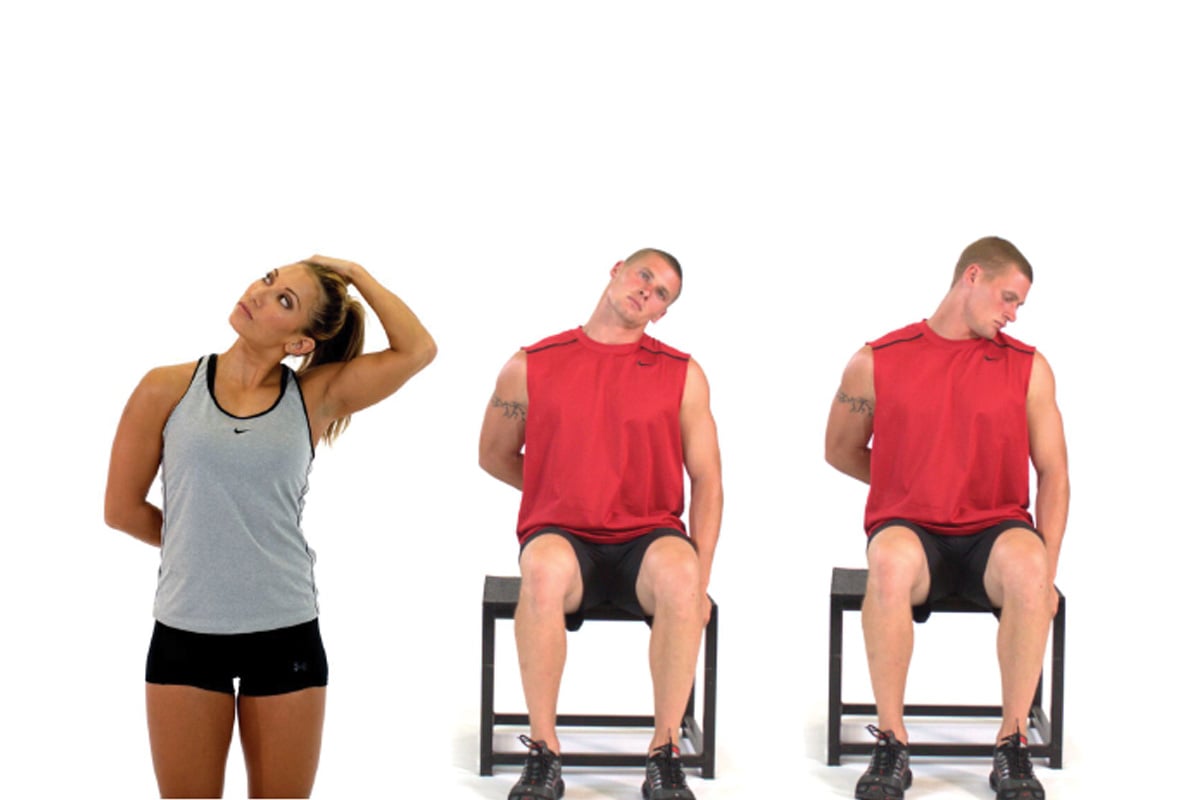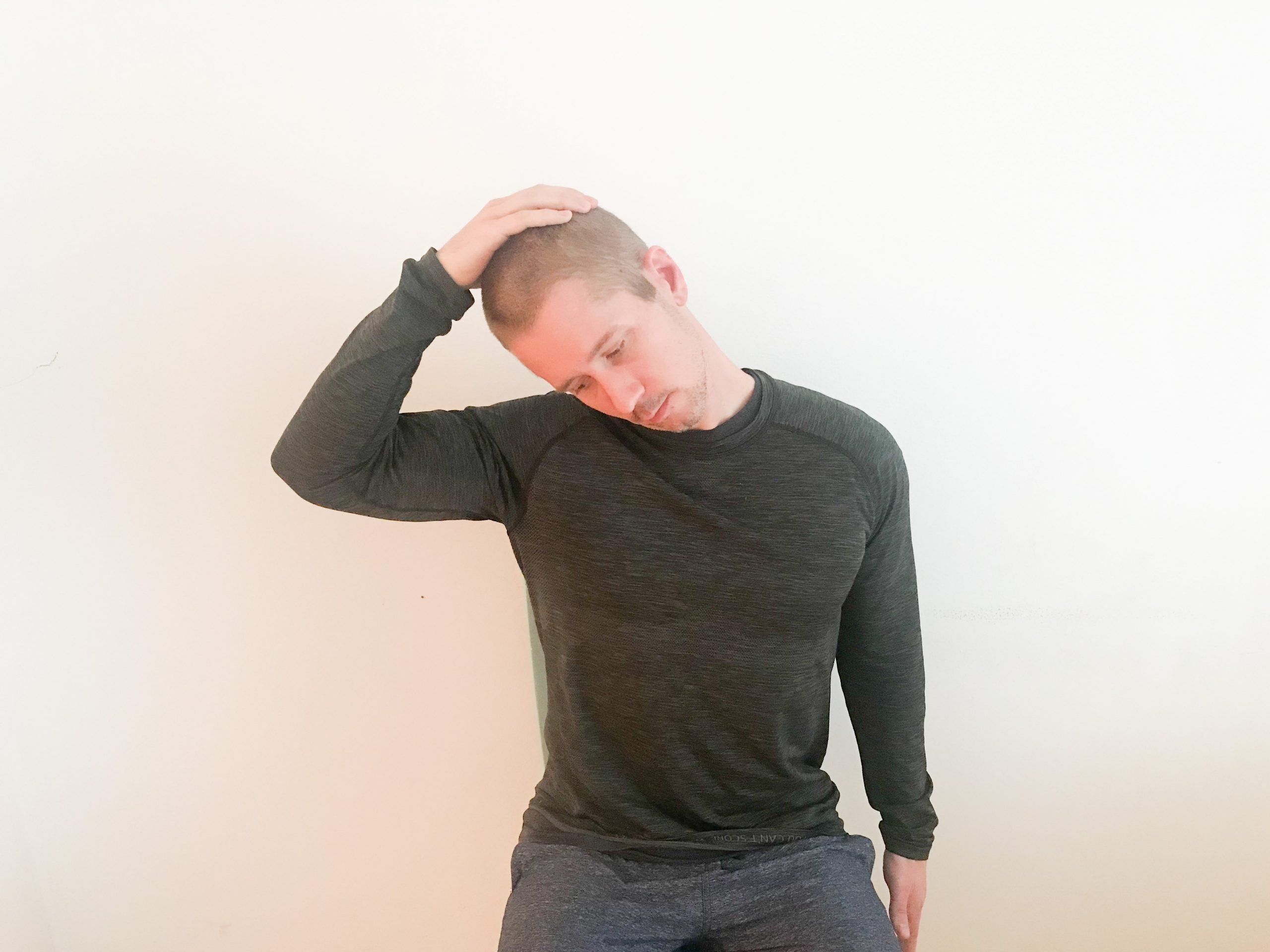Title: The Science Behind Why Stretching the Neck Can Induce Coughing
Meta tag description: Discover the fascinating connection between neck stretching and coughing. Learn more about why this phenomenon occurs and the possible underlying mechanisms.
Introduction:
Stretching is a common practice that many individuals incorporate into their daily routines to promote flexibility and relieve muscle tension. However, have you ever experienced an unexpected coughing fit while stretching your neck? This peculiar phenomenon has left many wondering why stretching the neck can trigger coughing. In this expert review, we will delve into the science behind this connection and explore the possible reasons behind this intriguing occurrence.
Understanding the Anatomy:
To comprehend why stretching the neck can lead to coughing, it is crucial to have a basic understanding of the relevant anatomy. The neck houses vital structures such as the trachea (windpipe), esophagus, blood vessels, and nerves. Additionally, the neck contains the larynx, which houses the vocal cords, and the pharynx, which serves as a passage for both air and food.
The Vagus Nerve:
One key factor contributing to the relationship between neck stretching and coughing is the involvement of the vagus nerve. The vagus nerve, also known as the tenth cranial nerve, plays
Why do I cough when I stretch?
Exercise-induced bronchoconstriction
Simply stated, your airways temporarily constrict, which can cause you to cough. This is referred to as exercise-induced bronchoconstriction (EIB), according to the American College of Allergy, Asthma, and Immunology (ACAAI).
Why do I cough when I bend my neck forward?
MILD cervical spine instability, the head is moving forward causing a mild stretch of the nerves and blood vessels. When blood vessels are stretched, the vessels narrow. It is at this point some people may start experiencing “mysterious symptoms” and strange sensations such as a cough that does not go away.
What is vagus nerve cough?
Vagus nerve dysfunction can trigger cough[23]. Chronic neuropathy of the laryngopharyngeal nerve, a branch of the vagus nerve, presents with symptoms of laryngeal irritation such as chronic cough, stridor, throat irritation, dysphonia, and foreign body sensation in the throat.
What are the symptoms of a compressed vagus nerve in the neck?
Cervicovagopathy is then the neck's altered or broken structure causing compression or disease on the vagus nerve and then on to produce a myriad of:
- Neurological-like problems:
- Cardiovascular-like problems:
- Gastrointestinal-like and digestive problems.
- Headaches.
- Immune disorders.
- Urinary and bladder problems:
- POTS.
What is the Arnold nerve cough?
Arnold's nerve ear-cough reflex is recognised to occur uncommonly in patients with chronic cough. In these patients, mechanical stimulation of the external auditory meatus can activate the auricular branch of the vagus nerve (Arnold's nerve) and evoke reflex cough.





You don't have her like I do...*cough* neck pain, just stretching out 😌 https://t.co/68fdCf5Lfz
— AK | FreenBeck enthusiast // มีพี่อยุ่ข้างๆเสมอ (@NHBdeftotes) June 15, 2023
What triggers fluid in the lungs?
Several conditions may cause pressure within the left side of the heart, leading to excess fluid to enter the lungs. Heart conditions – including congestive heart failure, coronary artery disease, arrhythmia, and heart-valve problems, may prevent blood from being propelled forward properly.
Frequently Asked Questions
Why do I get edema after exercise?
Your body releases cortisol during exercise, which can impact your fluids and cause your body to retain water. Also note that better blood flow leads to the swelling of the muscles. So, don't panic. Allow your body to adjust to the workout routine and the bloating should disappear after a couple of weeks.
What causes fluid to keep building up in lungs?
Pulmonary edema is a condition in which too much fluid accumulates in the lungs, interfering with a person's ability to breathe normally. The problem is usually related to heart disease, but it has other possible causes, including kidney failure, blood transfusion reactions, or travel to destinations at high elevation.
What are 3 common causes of pulmonary edema?
Causes
- Heart attack, or any disease of the heart that weakens or stiffens the heart muscle (cardiomyopathy)
- Leaking or narrowed heart valves (mitral or aortic valves)
- Sudden, severe high blood pressure (hypertension)
Does fluid on lungs mean end of life?
Heart and lungs are last
The lungs begin to fill with fluids. Breathing is accompanied by a wet, crackling sound. Although alarming to hear, it is a normal part of the dying process. It does not appear to reflect pain or discomfort for the patient.
Why does it feel like fluid build up in my chest?
Pleural effusion occurs when fluid builds up in the space between the lung and the chest wall. This can happen for many different reasons, including pneumonia or complications from heart, liver, or kidney disease. Another reason could be as a side effect from cancer.
Why do my lungs feel raw after exercise?
Exercise-induced asthma is when the airways narrow or squeeze during hard physical activity. It causes shortness of breath, wheezing, coughing, and other symptoms during or after exercise. The medical term for this condition is exercise-induced bronchoconstriction (brong-koh-kun-STRIK-shun).
Why does stretching make me cough?
Before you worry that your cough is a symptom of the novel coronavirus disease, COVID-19, consider this: Coughing during or after exercise is a common symptom of a condition called exercise-induced bronchoconstriction (EIB), which occurs when the airways in your lungs narrow temporarily in response to any kind of ...
Why does movement make me cough?
Overview. Exercise-induced asthma is when the airways narrow or squeeze during hard physical activity. It causes shortness of breath, wheezing, coughing, and other symptoms during or after exercise. The medical term for this condition is exercise-induced bronchoconstriction (brong-koh-kun-STRIK-shun).
FAQ
- Why do I cough when I exercise?
- The main etiologies of cough in athletes are somewhat similar to non-athletes, including asthma/airway hyperresponsiveness, upper airways disorders such as allergic or non-allergic rhinitis, and exercise-induced laryngeal obstruction, although these conditions are more frequently observed in athletes.
- What is cough hypersensitivity syndrome?
- Cough hypersensitivity syndrome (CHS) is a clinical syndrome characterised by troublesome coughing often triggered by low levels of thermal, mechanical or chemical exposure.
- Is it normal to cough up blood after exercise?
- INTRODUCTION: In athletes, high capillary transmural pressures generated during exercise can cause mechanical failure of the thin alveolar blood-gas membrane, resulting in edema and then hemorrhage (1).
- Is bleeding after a workout normal?
- Intense exercise can cause changes in the hormones responsible for your menstrual cycle. It can cause you to have breakthrough bleeding when you are not on your period, lighter periods than you normally have, and sometimes, no period at all.
- Can overexertion cause coughing up blood?
- The phenomenon of exercise‐induced hemoptysis is well known to occur in thoroughbred racehorses, but it is still relatively underrecognised or reported in human subjects 1, 2.
- Should I be worried if I cough blood?
- See your GP as soon as possible if you cough up blood. It's particularly important to see your GP if: you cough up more than a few teaspoons of blood. you also have chest pain, dizziness, fever, light-headedness or worsening shortness of breath.
- Is it OK to have a little blood in your mucus?
- The blood may be bright red or pink and frothy, or it may be mixed with mucus. Also known as hemoptysis (he-MOP-tih-sis), coughing up blood, even in small amounts, can be alarming. However, producing a little blood-tinged sputum isn't uncommon and usually isn't serious.
Cough when stretching neck
| Why do I cough up blood when I exercise? | INTRODUCTION: In athletes, high capillary transmural pressures generated during exercise can cause mechanical failure of the thin alveolar blood-gas membrane, resulting in edema and then hemorrhage (1). |
| Is it normal to throw up blood after working out? | People should also see a doctor if they experience severe symptoms, such as blood in the stool, vomiting blood, black or tarry bowel movements, or severe stomach pain. These symptoms may indicate a more serious underlying health issue. |
| Why does my throat bleed when I exercise? | This irritation can come from being sick and blowing your nose frequently or from working out at higher altitudes or in environments with dry or cold air. When exercising, the effort exerted on top of the existing irritation might cause the mucous membranes to “bleed just ever so slightly,” Miller said. |
| Why does blood come out when I workout? | This spotting can occur for several reasons, including increased pressure on the abdomen that results in growths and abnormalities—such as endometrial and cervical polyps—that lead to bleeding during exercise. Hormonal irregularities may also cause bleeding, although this may or may not be related to exercise. |
| Why do I spit blood after running? | A metallic or blood taste in your mouth during or after exercise can occur from a variety of causes. The potential culprits range from mucous membrane irritation to old metal fillings in one's teeth to lactic acid buildup and pulmonary edema. |
| Why do I get a cough after exercise? | Exercise-induced asthma is when the airways narrow or squeeze during hard physical activity. It causes shortness of breath, wheezing, coughing, and other symptoms during or after exercise. The medical term for this condition is exercise-induced bronchoconstriction (brong-koh-kun-STRIK-shun). |
| Why do I start coughing when I bend over? | Many people with gastro-oesophageal reflux disease experience chronic cough due to acid reflux. Chronic cough also accompanies heartburn; however, people with gastro-oesophageal reflux disease may only have cough as their symptom. Coughing is worsened during or after eating, talking, and bending. |
- What part of the body triggers a cough?
- The cough center generates an efferent signal that travels down the vagus, phrenic, and spinal motor nerves to expiratory musculature to produce the cough.
- What is a vagus nerve cough?
- Vagus nerve dysfunction can trigger cough[23]. Chronic neuropathy of the laryngopharyngeal nerve, a branch of the vagus nerve, presents with symptoms of laryngeal irritation such as chronic cough, stridor, throat irritation, dysphonia, and foreign body sensation in the throat.
- Why do I cough after Crossfit?
- EIB is caused by the loss of heat, water or both from the airways during exercise when quickly breathing in air that is drier than what is already in the body. Symptoms typically appear within a few minutes after you start exercising and may continue for 10 to 15 minutes after you finish your workout.
- What is Crossfit lung?
- “The burning lung sensation (aka “Fran Lung”) is commonly felt after workouts such as Fran, or those that are short in duration and extremely high in intensity. The medical term is Exercised Induced Interstitial Pulmonary Edema.
- What is a cough associated with exercising?
- Overview. Exercise-induced asthma is when the airways narrow or squeeze during hard physical activity. It causes shortness of breath, wheezing, coughing, and other symptoms during or after exercise. The medical term for this condition is exercise-induced bronchoconstriction (brong-koh-kun-STRIK-shun).
- How do you get rid of a runner's cough?
- How To Reduce Coughing Attacks
- Do not skimp on your warm-up and cool-down.
- Focus on breathing in through your nose and out through your mouth.
- Run indoors if the air is very cold and dry outdoors.
- Try running with a scarf over your mouth and nose.
- How To Reduce Coughing Attacks
- How long does exercise-induced cough last?
- Symptoms usually resolve spontaneously within 30 to 90 minutes and induce a refractory period of 1 to 3 hours, where continued exercise does not produce bronchoconstriction. [1] Patients may also be asymptomatic, and therefore EIB may be underdiagnosed.
